Wyniki wyszukiwania
49 results for query Technologies
Reports(22)
-
Heating transformation 2030 | Small district heating systems

87.5% (463 out of 529) of all district heating systems in Poland do not have the status of efficient systems. They must change this if they want to maintain access to public aid in the future and continue to provide Poles with heat at a reasonable price.
23.11.2017 -
Polish energy sector 2050 | 4 scenarios

What will be the result if Poland keeps its energy mix based on coal, introduces nuclear power or promotes renewables? Forum Energii analysed four different scenarios for the development of the Polish energy sector over the next 30 years. Report presents the economic, social and environmental implications of their implementation.
22.9.2017 -
Capacity market arrangements in Great Britain - lessons learnt for Poland
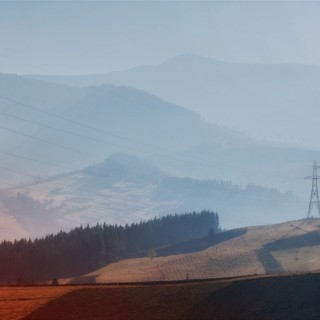
In 2014, the UK government introduced legal provisions for a capacity market in Great Britain. Many countries – including Poland – have since then followed the developments on the island. FAE describes the power market in Great Britain as well as measures to raise its security of supply. It also compares the volume of Great Britain’s capacity reserve with that of Poland. The goal of the project was to analyse the results of the capacity auction in Great Britain in December 2014 and to draw possible lessons for Poland in view of the special situation of the Polish power sector.
6.4.2015 -
Offshore energy | Downwind or upwind?

Offshore can become a Polish specialty. It can be a source of cheap, clean energy and help to improve energy security. Implementation of this technology is possible if only government decision is taken. It is also important to speed up the process of obtaining permissions by investors and reduce investment costs.
28.11.2018 -
Poland's Energy Policy 2040 in the spotlight

Probable delays of the nuclear energy project, insufficient attention to energy costs and the risk of non-compliance with EU climate and energy targets – these are some of the comments of Forum Energii on the draft Poland’s Energy Policy.
15.1.2019 -
Good heating practices from Denmark and Germany. Conclusions for Poland

Currently Poland faces a choice of long-term action plan in heating. As part of the Clean Heat project Forum Energii took a deep insight into experiences of Denmark and Germany, which significantly modernized their heat supply systems and improved air quality at the same time.
23.1.2019 -
Flexibility of the Polish power system | Diagnosis, potential, solutions

Flexibility of the power system means its ability to maintain uninterrupted operation under conditions of rapid and huge fluctuations in electricity consumption generation. It is an inherent part of the system design and control of its operation. In the analysis, Forum Energii puts forward solutions supporting the improvement of the national power system flexibility. In addition to reducing the costs of the power sector and the improvement in quality and reliability of the electricity supply, their objective is to reduce emissions by the power sector.
12.2.2019 -
Clean heat 2030 | Strategy for heating
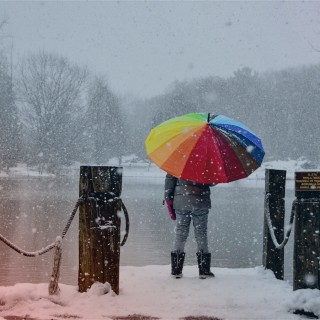
In the report "Clean Heat 2030. Strategy for heating" Forum Energii examined how to make heating no longer a source of smog in Poland by 2030 in a cost-effective and socially acceptable way. According to the analysis, health costs of pollutants can be reduced by 50% within a decade and dust emissions from individual heating by 91%. At the same time, CO2 emissions from heating will fall by 30%.
17.4.2019 -
Locational market in Poland. Security of supply, costs and the impact on the energy transition

In the latest report Locational market in Poland. Security of supply, costs and impact on the energy transition, Forum Energii recommends changes on the energy market in Poland. It is a response to the emerging problems of the Polish energy transformation - high prices, ageing infrastructure, dominant share of coal. As an example, it presents the functioning of the electricity markets in the United States.
4.7.2019 -
Energy Boost for Poland
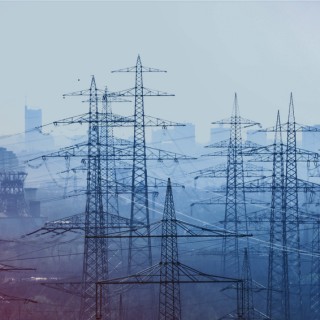
"Energy Boost for Poland" - a package for the economy prepared by the Forum Energii and Polish Confederation Lewiatan. Forum Energii and the Confederation Lewiatan call for the adoption of the "Energy Boost for Poland" package, which aims to mobilise available public and private funds for the Polish energy modernization. The implementation of the "Energy Boost for Poland" will stimulate investments worth over PLN 580 billion, which will create 240 thousand new jobs. Investments in the energy sector should be an element of the strategy for overcoming the crisis caused by the coronavirus pandemic.
11.5.2020 -
Renewables in heating

Heating and all of us in Poland have a problem. In domestic heating we rely on technologies from the 50s and 60s of the last century. In winter we have the worst quality air in the European Union. The society bears the enormous health costs related to air pollution - 120 billion PLN annually. We use primarily coal, which we are running out of, and we need to cover the costs of CO2 emission allowances. What next? Does coronavirus mean the end of dreams about clean air and the end of investments in modern technologies? Quite the opposite. Right now we should be looking at renewables.
13.5.2020 -
Poland: climate neutrality by 2050. Electrification and sector coupling

Electrification sets the direction of inevitable changes in many areas of our lives, including transport and heating. This direction will force a closer cooperation of various sectors of the economy with the future, completely different from today's power system. The integration of three industries — transportation, heat, and power generation— is the new concept for the operation of the entire energy sector. What can it look like in 2050? How will the necessary changes bring Poland closer to the goal of climate neutrality? Forum Energii in the new analysis convinces that a good strategy of sector coupling is a benefit for the Polish economy and society.
19.6.2020 -
Heat electrification in Poland | The path to clean heat

Despite the government's declarations, progress in improving air quality in Poland has been poor. The rate of modernisation of buildings is slow, and public funds continue to support the replacement of old coal boilers with other coal-fired options, which other European countries have phased out. Meanwhile, a huge stream of European money will be flowing towards 'clean heat' in the coming years. In the newest analysis from the Forum Energii, we explain why it is worth betting on electrification of heating, identify which technologies have a future, and explore how this will affect the energy system.
26.1.2021 -
Dynamic and just | Network tariff design for the future
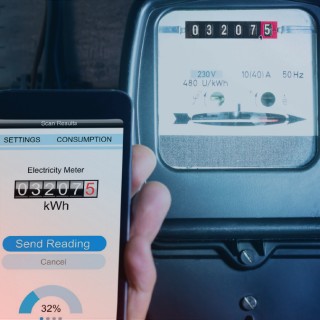
It is non-elastic, inefficient, unsuited to the changing realities of the energy market and the accelerating energy transition. The Polish model of network tariffs, i.e. the system of payments for delivering electricity to consumers, must be changed. In its latest report, Forum Energii, together with the Regulatory Assistance Project, analyses the principles that need to be considered when designing a new approach to tariffs.
6.5.2021 -
Green Gases | Biomethane and hydrogen in Poland

Over the next decades, the way Europe generates energy will change significantly. The goal of achieving climate neutrality means fossil fuels will be replaced by renewable energy sources within 30 years. Playing a key role will be biomethane and green hydrogen produced from RES—green gases—the development of which should already be spearheaded Poland. It is necessary to start planning the rational use of these gases in the economy because there probably will not be enough for everyone, and some sectors will be easier and cheaper to decarbonise through electrification. Poland is already working on setting the framework for their use in various sectors of the economy. The latest report by Forum Energii may help in preparing the strategy.
25.6.2021 -
The cost of carbon-free buildings and transport: the EU’s plans and Poland's challenges
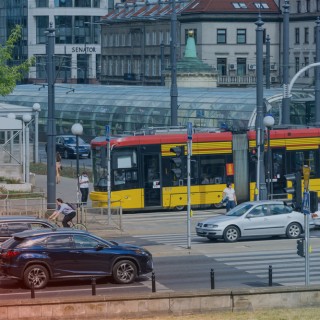
Work on the European Green Deal is accelerating. The main tool to achieve the new targets for reducing greenhouse gas emissions (GHG) in the EU will be the Fit for 55 package. Among its key elements is support for reducing CO2 emissions from buildings and transport. For Poland, this debate will be uncomfortable because over the course of three decades, not only has pollution not decreased but it has increased considerably in transport. This results in terrible air quality in Poland. Catching up, which is necessary for both climate reasons and the modernisation of outdated infrastructure and improvement of air quality, will be a challenge. The introduction of emission charges is intended to help. In its latest study, Forum Energii proposes measures to internalise the external costs of emissions in a way that is smooth, gradual, and socially acceptable.
2.7.2021 -
Microinstallations on a turning point | How to secure the future of distributed energy in Poland?
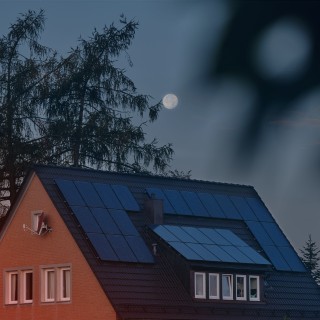
In recent years, over 600,000 households and businesses have invested in their own solar installations, and approximately 35,000 jobs have been created in companies offering services in this segment. This is the biggest, albeit unplanned, success of the Law and Justice government in the energy sector. However, further expansion of micro-installations in Poland is questionable - the government is planning changes in the rules governing this dynamically developing energy sector. This is an operation on a living organism, therefore surgical precision is needed in introducing changes - a transparent process, clear intentions and time that will allow the newly established sector and energy companies to prepare for the transition.
21.10.2021 -
Clean heat as an engine for the Polish economy
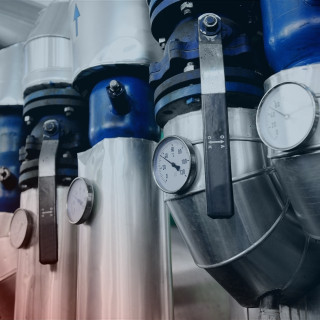
A new approach to heating is needed in Poland. It is currently a neglected area where the necessary changes and modernisation have been postponed for years. As a result, every winter we have the most polluted air in the European Union and the Polish district heating system is on the verge of collapse. The costs and scale of the investments needed are enormous, but further delays will lead to an even higher prices.
5.4.2022 -
Energy in Belchatow After Lignite
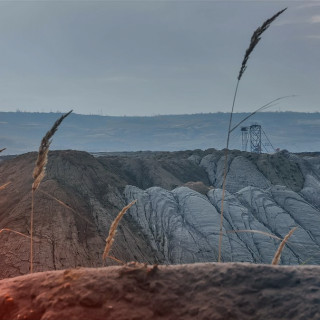
Transitioning Europe's largest coal power plant to a secure, resilient, affordable clean energy future. New study outlines a transition plan for Europe’s largest coal-fired power plant, located in Belchatow, Poland.
20.10.2022 -
To accelerate the development of RES
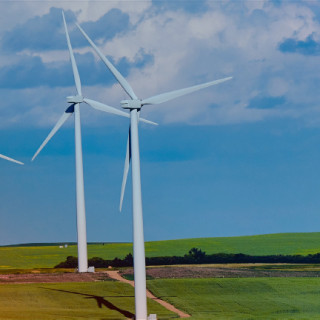
The Polish energy system urgently needs an accelerated development of new renewable capacity. Work is underway in the Polish parliament to liberalise the 10 H distance rule, which stemmed development of onshore wind. Changing this rule is one of the most important decisions on which the success of Poland's energy transition lies. The seemingly small change in the location of investments from the originally planned 500 m to 700 m from residential buildings - is a significant reduction in the potential for wind energy development. This is one of the most high-profile examples of how renewable energy sources are still treated by decision-makers as an unwanted addition to the energy system and face development barriers. Other problems include the length and complexity of the process of locating investments and obtaining planning permits, as well as the lack of connection capacity for installations. In the latest Forum Energii report, we propose solutions to optimise administrative processes and increase the technical capacity to connect new RES projects to the grid.
2.2.2023 -
Past time for gas?

Over the past two years, natural gas has become a high-risk fuel: it is subject to huge price fluctuations and, following the disruption of supplies from Russia, competition for imports of this resource from other sources is increasing. Not long ago, there were plans in Poland to significantly increase the consumption of natural gas throughout the economy - by 75% by 2035. It was supposed to be a transition fuel.
14.6.2023 -
The electricity system needs heating sector
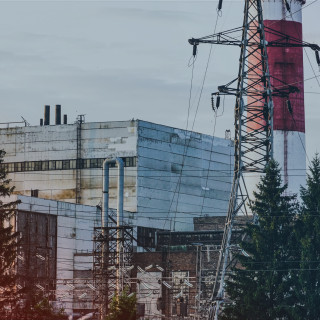
The National Power System (NPS) will face new challenges. These include the uninterrupted supply of energy to consumers when the oldest and most emission-intensive generating units are phased out, but also the efficient use of variable RES sources. District heating may be the key to solving NPS problems. In peak demand of the NPS, additional energy can be provided by cogeneration units, in times of surplus energy in the system - it can be absorbed by electric boilers producing cheap heat. The operation of CHP units can also improve the performance of electricity grids.
13.7.2023
Insights(24)
-
The US is withdrawing from the Paris Agreement - what does it mean?

President Donald Trump has announced the retreat of the Paris Agreement and a wish to renegotiate the global agreement. Trump's decision has a political dimension and will not have an impact on Europe's energy strategy.
2.6.2017 -
Poland’s Energy and Climate Plan to 2030 – not sufficient EU perspective

The National Energy and Climate Plan 2021-2030 is the second strategic document for the Polish energy sector in addition to the long-awaited Poland’s Energy Policy until 2040. It will affect, among other things, investments in the energy sector, the implementation of our international commitments, energy security and improvement of air quality. Therefore, it should not only describe the current state of the Polish energy sector, but above all define future objectives and determine measures and actions to achieve them.
26.2.2019 -
Clean heat 2030 | Costs and benefits
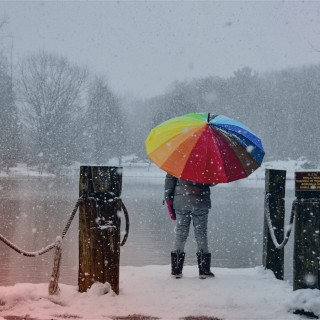
It would not be an exaggeration to say that domestic heating, both district heating and individual, is ahead of the historic bend. If we get into this turn right, we will be very successful, if not, the results may be significant.
20.5.2019 -
Power sector after the elections | Three tasks for the new government

The Polish energy sector is at a turning point. What will the next government find after the elections in the autumn? It will inherit not only electricity market, but also smog.
19.6.2019 -
1 GW of PV in Poland - this is just the beginning

In Poland we have just reached 1 GW of capacity in photovoltaic installations. Their growth rate has accelerated in the last several months. With the increasing economic attractiveness of photovoltaics, we are no longer wondering whether this development will be continued, but what are its limits. One thing is certain - we will wait much shorter for the next gigawatt and there will be at least a few drivers of this growth.
11.10.2019 -
RES auctions in Poland | Results and trends

The RES auction marathon is behind us and we finally know the final result. Twelve auctions for various technological baskets, for new and existing installations, were held during three weeks. The contracted 90.3 TWh of new, green electricity for 15 years is worth PLN 20.2 billion. As much as 86% of this volume will be purchased at prices lower than those currently prevailing on the wholesale electricity market. This is another proof that renewable energy sources can compete with conventional units without additional support.
23.12.2019 -
Will the Polish offshore finally speed up?

Offshore wind farms are still a distant perspective, even though the first location permits were issued in 2012. After many years, a draft act on the promotion of offshore wind electricity generation, which is expected to accelerate offshore development in Poland, has been finally prepared. The period of public consultations of the bill ended on February 14th and there is a chance to complete the legislative efforts by mid-2020. Are the proposed solutions sufficient and will they serve their purpose?
17.2.2020 -
Will the coronavirus slow down or speed up the low carbon energy transition in Poland?

The world is in chaos. The priority is to stop the spread of the virus and contain the crisis. A stable energy supply is crucial - it's hard to imagine what would happen if there was no power or heat supply now. The million dollar question however, how will the current crisis affect the energy transformation in the long term?
21.3.2020 -
Investment in the energy sector as a remedy for the crisis

After a few weeks of the pandemic in Poland, we know for sure that the virus will infect the economy, even as we finally get rid of it ourselves. We need to act decisively right now. But we also need to think about economic recovery, in which the low-carbon transformation of energy has to take a central place. This is the time for bold decisions, so far postponed. A strategic rebuilding of the sector must be announced today to help society emerge from the crisis and provide long-term benefits.
1.4.2020 -
The EU is ready to co-finance our energy transformation ― what does the Polish government have to say?
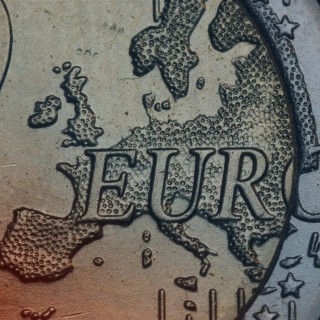
On 17 July the European Council will launch the final negotiations on the EU budget, unprecedented in scale and intended to pull the EU out of recession and give it a new boost. Since December 2019 Poland has been part of the EU discussions, trying to distance itself from climate neutrality in 2050. Although all other Member States agreed to it. For the time being, however, it seems that we may be one of the countries that will benefit most from the distribution of funds―we may gain over PLN 140 billion for the energy transition alone. Yet, the money will not be granted unconditionally. Poland needs to have a plan in place to achieve the EU's common goals―to commit to climate neutrality and to contribute to a 40% or even 55% reduction in emissions by 2030.
15.7.2020 -
Renewables in the Polish energy mix. Still not enough to meet the targets

The energy transformation has accelerated significantly. Thanks to the enormous cost reduction of solar PV and onshore wind, these technologies are increasingly being chosen by the private sector and households as an investment that allows for significant savings. In recent years, however, the development of renewable energy sources (RES) has depended on state policies and support schemes. They were to enable Poland to achieve the so-called RES target - renewables were to account for 15% of gross final energy consumption in 2020[1]. According to our estimates, the target is still far from being achieved - in 2019 the share of RES amounted to 11.5% only and everything indicates that this year too, the result of 15% is out of reach.
23.7.2020 -
Energy sector integration | Key to becoming climate-neutral by 2050

The future energy mix will be dominated by renewable energy sources (RES) with zero production costs, such as wind farms and photovoltaics. The abundance of cheap electricity will allow for the replacement of fossil fuels, both in heating and transport sectors. Effective integration of these sectors, within one energy system, will also help to solve the problem of weather-dependent RES production.
28.7.2020 -
55% ― only without panic

EU climate policy is accelerating again. The European Commission has just proposed raising the target for reducing greenhouse gas emissions until 2030 to 55%. Poland has always opposed ambitious goals, but now a breakthrough seems possible―the end of coal is inevitable, we must take care of energy security, after coronavirus we need new investments, and reducing CO2 emissions is associated with improving air quality, which the government defines as a strategic challenge. By taking these measures now, in heat, electricity and transport, emissions can be reduced by over 40%. The remaining cuts will come from the new policies on industry and agriculture and the sharing of efforts between Member States.
18.9.2020 -
Green hydrogen strategy still too gray
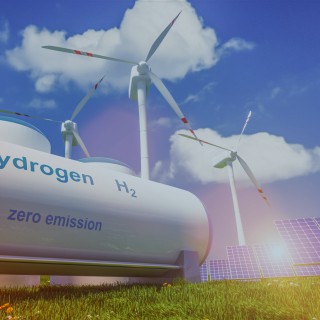
The government is about to conclude its public consultation of the draft Polish Hydrogen Strategy until 2030 with an Outlook until 2040. It gives hope that this time around Poland will join other European countries in the early stages of creating new technological solutions and supply chains. It is a chance for building national potential in a new industry and creating jobs. However, the hydrogen strategy is not yet reflected in other strategic documents defining the future of the Polish energy sector.
15.2.2021 -
EU Recovery Fund: 3 things Poland needs to do for the mechanism to bring real change

The National Recovery Plans are built on credit. The investments we design today must serve future generations—our children—because we all will be paying it back until 2057. It is based on concrete reforms, changes that need to happen in order to achieve the intended objectives. The consultations on the recovery plan in Poland is now coming to an end. How should we change it so that the money pays off in the future? In this opinion, I refer to the Green Energy and Energy Efficiency Component.
31.3.2021 -
The purpose of the EU-ETS and its pending reforms

Since the beginning of the year, CO2 emission allowance prices have risen by 70%, from EUR 30 to over EUR 50 per tonne. The rate of this increase has again triggered discussion in Poland on the purpose of the Emissions Trading System’s (EU-ETS) existence. Meanwhile, the EU discussion on the ETS, which is due to begin shortly, will not be about whether to abolish the system, but how to reform it so that the EU can achieve its decarbonization goals. Carbon pricing will be the most important tool for achieving the EU's 55% emissions reduction target in 2030. In this text, we explain the system’s basic operational principles and highlight expected discussion topics and possible upcoming changes.
2.6.2021 -
FIT FOR 55 - what will the package contain?

On 14 July, the European Commission will publish the Fit for 55 package consisting of several legislative proposals. This will officially launch the discussion on measures to achieve the interim EU climate neutrality target, i.e. a 55% reduction of CO2 emissions compared to 1990. Before these rules finally come into force, they have to be accepted by EU member countries (i.e. the Council) and the European Parliament. The negotiations will take at least a year, most likely - two. The changes will not be law until 2024, but it is high time we considered how to implement them for the benefit of the climate and the economy.
13.7.2021 -
10 steps to overcome the energy crisis

The prices of coal, gas, and CO2 are reaching record levels while the price for electricity is galloping, causing panic among politicians, energy consumers, and institutions responsible for maintaining Poland’s energy security. There is a state of emergency in the Polish energy sector caused by, among other things, the situation on the energy source market, but not only. The country is also bearing the consequences of many years of postponing necessary modernisation decisions. It is time to take urgent actions that match the situation.
8.12.2021 -
E-mobility - a chance for further development of economic cooperation between Poland and Germany

The Polish and German economies work in a system of interconnected vessels.Even if the echoes of the visit of the new German Chancellor Olaf Scholz to Poland suggest that there are many issues that divide us, there are also those that unite us. For instance the development of electromobility may raise this cooperation to a higher level, but it is necessary to prepare strategically for it. The focus should be on cooperation in the area of technological developmentbattery production and recycling, joint planning of infrastructure, as well as exchange and sharing of knowledge, especially in the area of innovation.
20.12.2021 -
The end of energy resource imports from Russia?

On February 24, Russia started the Ukrainian war. Nothing will be the same again. Russia's brutal attack made the ongoing conflict around energy resources all the more obvious. In 2021 alone Russia could have earned PLN 500 billion (or $120 billion). from the export of energy resources[1]. This revenue funds the Kremlin's military spending. Now we are considering whether giving up Russian fossil fuels is possible. Undoubtedly, this would be a radical solution with far-reaching and not entirely known consequences. If this were to happen, solidarity and close cooperation within the EU would be more important than ever before. In this article, we analyze what options Poland has to break its energy dependence on Russia.
28.2.2022 -
Renewables can reduce fuel imports

Last year the import of gas, oil and coal cost Poland PLN 89 billion. This year, it will be much more - by the end of June it already amounted to PLN 85 billion[1]. The supply crunch and spike in fuel prices have become the source of an economic and energy crisis, and a means of exerting pressure on Europe. Meanwhile, renewables not only reduce emissions and energy prices, but also import dependency on energy resources.
29.11.2022 -
Conclusions from the 7th capacity market auction - cleaner, but adequacy remains a challenge

The results of the seventh auction in the Polish capacity market clearly show the dilemma Poland has faced - existing high-carbon (coal) capacity can no longer be supported with this mechanism, while gas is risky due to the geopolitical situation. Although Polish energy companies have not completely abandoned gas projects, fewer appeared in the auction than previously announced. There is also clearly a greater variety of technologies than before - for the first time, contracts were granted to storage. The market is still expensive - for the second year in a row auctions ended in the first round and at the maximum price.
20.1.2023 -
Europe needs a new energy security strategy

The European Union’s Energy Security Strategy was adopted in 2014, shortly after Russia’s annexation of Crimea. By now, not all of it has been implemented, and some of its points are outdated. After ten years and Russia’s full-scale attack on Ukraine—and in the era of a climate crisis—the EU’s energy security strategy needs to be rewritten. The basis of this strategy should be a cost-effective, but also decentralized, digitalized and decarbonized energy system based on renewable sources in which energy efficiency plays the key role. Such a future is worth fighting for.
28.7.2023 -
Anatomy of Dependence: How to Eliminate Rosatom from Europe

EU countries depend on cooperation with Russia in the field of nuclear energy. This has meant that even despite the Russian full-scale invasion of Ukraine, the Rosatom corporation has not been sanctioned and trade in this sector is growing. This situation is unfavourable for the EU and increases its vulnerability to blackmail from Russia. Moreover, it strengthens the Russian military. The EU should increase its efforts to diversify supplies and build its own capabilities in the nuclear sector.
5.9.2023
Events(3)
-
Conference | COP24's contribution to the Paris Agreement | New dimension of energy security
21.11.2018 Villa Foksal, ul. Foksal 3/5, Warszawa
Energy security and climate change is an inseparable but often overlooked topic that should be taken up in the discussion on energy transition. Just ahead of the UN Climate Change Conference in Katowice, The German Marshall Fund’s Warsaw Office and Forum Energii hosted an event - COP24's contribution to the Paris Agreement | New dimension of energy security. You can watch entire conference on our youtube channel.
-
Panel expert meeting | How to "green" Polish district heating?
12.5.2020 zoom
In 2019, in the Clean Heat 2030 strategy, we identified four scenarios for reducing CO2 emissions in district heating. One of them predicted its complete decarbonisation by 2050. At that time, however, we did not present in detail the technologies that could help achieve this goal. During panel expert meeting we will present those which will play the most important role in the next decade and will enable us to achieve even 40% of RES in the heating sector in 2030. Together with the Renewable Energy Institute we have analysed their costs, application and specificity. We have not ignored the state of natural resources in Poland, regulations and megatrends. All this was described in the report "RES in District Heating. Technologies that will change the reality".
-
Conference | Clean heat as a driving factor of Polish economy
5.4.2022 online
Modernisation of the individual heating and district heating sectors is inevitable and is largely economic in nature - outdated infrastructure, dependence on fuel imports, environmental and health costs of air pollution. The scale of investment needed is huge, but it can be made to give a boost to national economic policy and industry, helping to increase GDP, attract high-tech elements of the supply chain or create attractive jobs in post-coal regions. Which technologies should we focus on? Which directions of support should have priority? We invite you to participate in the conference online - the event is free and no registration is required. The conference is held in Polish only. >>>WATCH LIVE<<